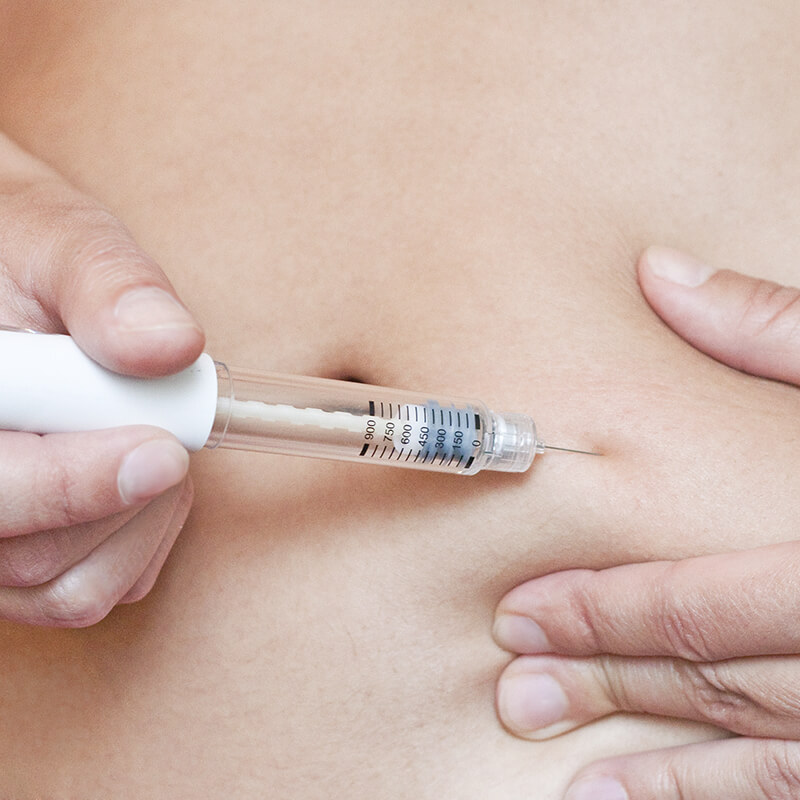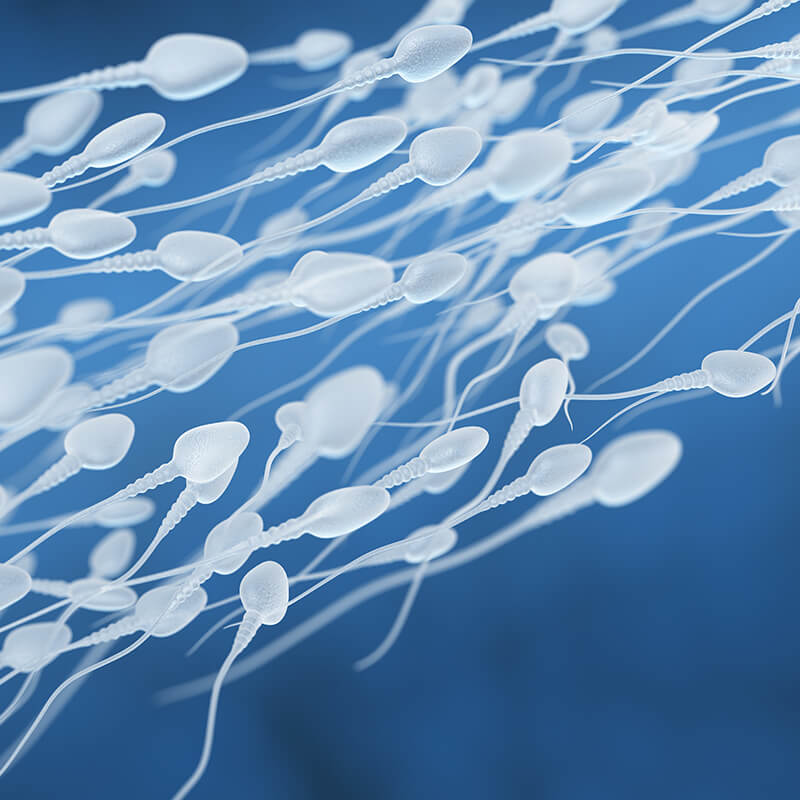Fertility Treatment
Options and ConsiderationsIVF treatment
In-Vitro Fertilisation, or IVF, revolutionised fertility management when the first child was born through this method more than 40 years ago. The treatment offers couples that would never had any chance of pregnancy of their own a chance to conceive. It remains the most widely used and best treatment option.
The treatment can be explained in brief like this:
The woman receives hormone treatment that stimulates many eggs in the ovary to ripen.
The egg is removed using a thin needle with suction. The removal is vaginal, and happens under light anesthetic.
The egg is fertilised in the lab (the in-vitro part) outside the body.
The egg is grown in the lab to the day-five stage, or blastocyst stage. The developing embryo has reached the several-hundred cell stage. It has a fluid-filled space in the centre, the “cyst” part of blastocyst.
It is transferred back into the woman’s uterus via a catheter through the cervix.
Ovulation induction
Ovulation induction is my favourite treatment option because it is usually the simplest and most successful option.
The main limitation is that our high success is mostly in women who are not ovulating. Those women are typically younger women, who therefore enjoy higher success rates.
There are two main methods of doing ovulation induction: tablets or injections.
Clomiphene, or “Clomid,” was historically the most commonly used medication. Newer medications and injection medication copy the substance naturally produced by the body to stimulate egg release. These medications have higher success rates than Clomid, which is being relegated to the history books.
It is usually a safe treatment, and much less demanding and invasive than IVF. However, it is only useful in a smaller percentage of women trying to conceive.
It is not without risk. The main risk is the potential for multiple pregnancies, and so it is important that treatment is closely monitored.


IUI or artificial insemination
Intrauterine insemination, or IUI, is sometimes known as AIH. It is an older form of treatment, older than IVF. It is best called empirical treatment, and it may be an option in couples that have unexplained infertility.
It can be divided into two parts. The first part is driving the ovary to release two eggs instead of one. By doing so, we increase the chance of fertilising an egg. Clearly, we increase the chance of a twin pregnancy, too, but that is the least likely outcome, after no pregnancy at all and a single pregnancy.
The second part is separating the best, fastest-swimming sperm from a semen sample. The sperm is loaded into a catheter and put through the cervix, high in the uterus, close to the opening of the tubes. There are now more sperm closer to where they are needed, and the sperm have less distance to swim, to the mid-part of the tube where fertilisation occurs. This is done at the peak stage of a woman's fertility.
It is a little demanding, but much less so than an IVF cycle. The biggest problem with IUI is that it is not very good treatment. Historically, we have quoted a success rate of about 15% chance per cycle. While that may not sound good, but considering that the peak fertility of our species is less than 30%, it is not so bad.
We are always auditing our results, and rates have been much less successful than that. It may be because the wrong couples are choosing to use this option. It is an option, albeit not a very good one.
IVM or In Vitro Maturation
One of the potential problems with IVF is to overstimulate the ovary. This can lead to the potentially serious complication of ovarian hyperstimulation syndrome. With protocols in our practice, it is uncommon. That said, some women are at greater risk of developing this complication.
Women with polycystic ovarian syndrome (PCOS) or women who have had an IVF cycle cancelled because of potential hyperstimulation may instead consider IVM, in-vitro maturation.
We are one of few units worldwide to have a successful IVM program and were the first successful program in Australia.
The main advantage of IVM is that it completely eliminates the risk of hyperstimulation.
Essentially, it is a variation on IVF where there is shorter, more limited stimulation of the eggs. The eggs are also collected at a much earlier stage of their ripening. The maturation of the eggs occurs in the laboratory, not the woman’s body, for a few days before they are fertilised.
It is not commonly used, but it produces results similar to IVF with less risk.

Alternative fertility treatment
There are things that you can do to aid your potential to conceive, but often, it is outside your control.
These are things you can try to improve fertility. Importantly, this applies to both parties, male and female:
Optimise weight
The optimal weight range for conception is the normal range. Being overweight reduces fertility and increases miscarriage rate, and obesity makes it much worse. The risks increase so much that at a higher weight range, pregnancy is not in a woman’s or a baby’s best interest.
At the other end of the scale, underweight women have reduced fertility and greater pregnancy risk. Sometimes, putting on a little weight can be a simple option to drastically improve fertility.
Moderate exercise
Diet
Avoid risk factors
These risk factors can affect fertility and a potential pregnancy:
- Smoking:
This is probably the single biggest negative that is under your control. Importantly, there is a concern that damage to sperm from smoking may have a lifelong impact on the child, should you conceive.
- Alcohol:
I suggest moderation. Abstain for both parties, by all means, but while it is advised that a pregnant woman should not drink, having limited alcohol while attempting conception for both parties is OK. A high intake is an important health issue in its own right.
- Caffeine:
Again, this is a minor issue. One strong coffee-machine coffee a day is acceptable both while attempting conception and while pregnant. That equals about three cups of tea. You can, of course, choose to have none, but it is not critical.
- Recreational drugs:
On a social level, parents need to consider whether recreational drug use is appropriate while parenting at any time. Cannabis, or marijuana, has — at least theoretical — capacity to interfere with chromosomes in the lab. So, it is not a great idea when trying to conceive.
Chances of success
What are your chances of success? This is a very complicated question.
The most important starting point to answer this question is to recognise the very poor fertility of our species. Your chance of conception on a single cycle peaks at age 20, with about a thirty percent chance of conception. And from there, it is downhill.
To give you a realistic answer to this question, we can start to answer it after your initial assessment.
My constant concern is that people only hear that “there is a chance” when I say that “that chance is very low.”
How I can help you
My fertility practice is through Fertility Specialist South. I am happy to share my decades of experience around fertility practice in Perth with you to try to help you achieve your goal.

